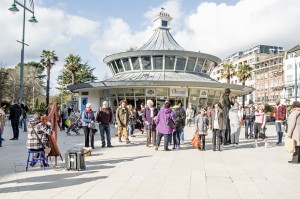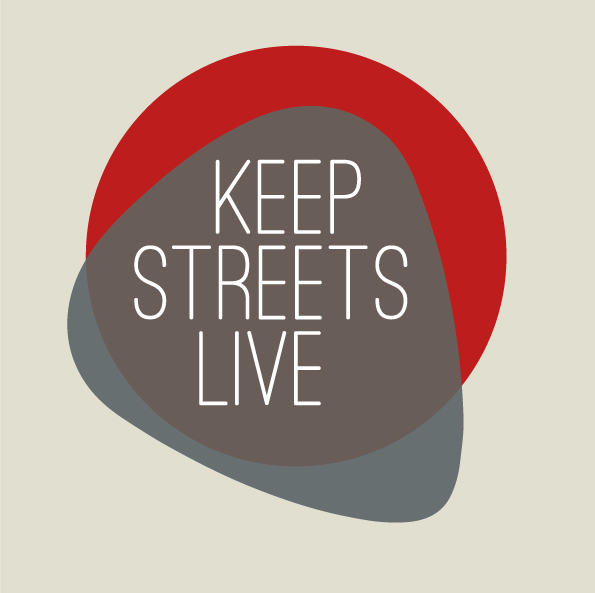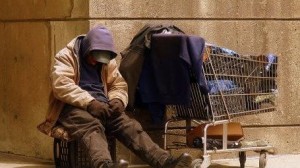Keep Streets Live Official Response to Bournemouth PSPO Consultation

Keep Streets Live Campaign in Bournemouth
The Keep Streets Live Campaign has responded to the online Bournemouth consultation on whether to introduce a PSPO banning busking and skateboarding in large areas of the town. These proposals will make busking and skateboarding in Bournemouth a criminal offence punishable by a fine of up to £1000. We think this proposal will have am enormously detrimental impact upon the grassroots cultural life of the town and risks criminalising vulnerable people unnecessarily. In summary we think that the proposals are a disproportionate response to problems caused by a minority of irresponsible individuals which can be adequately dealt with in other ways. You can participate in the online survey here: https://www.snapsurveys.com/wh/s.asp?k=150962689696
Please take ten minutes to give your views, they will help make a difference and give Bournemouth Borough Council an incentive to consider a different, more collaborative approach
We have provided our answers to the survey and our reasons here which you should feel free to use as a reference point:
How strongly do you agree or disagree that Bournemouth Town Centre experiences persistent and unreasonable behaviour caused by:
Skateboarding in certain areas of the town
Busking in certain area of the town
(Please tick one option per row)
Strongly Disagree
It is not busking or skateboarding that causes persistent and unreasonable behaviour, it is the actions of some individual buskers and skateboarders who behave irresponsibly and unreasonably. There is nothing intrinsic in busking or skateboarding as activities in public spaces that means that either activity should be subject to a PSPO. Instead there should be targeted and effective enforcement against the minority of individuals whose actions have a detrimental impact upon others rather than a blanket prohibition that will effectively criminalise the responsible and reasonable majority.
How much of an issue do you think the following behaviours in Bournemouth Town Centre are:
(Please tick one option per row)
Skateboarding in certain areas of the town
Busking in certain area of the town
Somewhat of an issue.
Clearly busking and skateboarding as activities have the potential to cause issues from time to time. They are part of the everyday life of towns and cities in the UK and, from time to time, people may have cause for complaint about the actions of individual buskers or skateboarders. It is not reasonable to expect that there should never be any issues with activities such as busking or skateboarding. Equally, they are activities that have the potential to bring enjoyment and vibrancy to the shared spaces of the town centre and it is difficult to see how a blanket ban using a PSPO will be helpful when existing enforcement powers can be effectively used to target the actions of an irresponsible minority.
How strongly do you agree or disagree that these behaviours should be regulated through a PSPO:
(Please tick one option per row)
Skateboarding in certain areas of the town
Busking in certain area of the town
Strongly Disagree
The problem with a PSPO when applied to activities like busking or skateboarding is that it creates a blanket criminal offence which criminalises behaviours which are not, in and of themselves harmful and are actually often beneficial to the cultural life of our towns and cities. A PSPO is a disproportionate response to the issues caused by a minority of individuals and will create a situation where unnecessary enforcement is carried out against individuals who are not causing any issues per se just because they are busking or skateboarding. A better approach would be to target enforcement against irresponsible and unreasonable behaviour using existing legislation without creating a blanket offence.
What conditions do you feel might be appropriate for skateboarding under a PSPO?
(Please tick one option)
None
What conditions do you feel might be appropriate for busking under a PSPO?
(Please tick one option)
None
How strongly do you agree or disagree with the proposed area (shown above) for the PSPOs?
(Please tick one option)
The proposed area covers a large portion of the town centre and would diminish the positive role that busking and skateboarding can play in the life of the town centre by making it a criminal offence to engage in these activities in the defined area. Once again, the proposals are disproportionate to the issues caused by busking and skateboarding. Enforcement should be targeted against those individuals who cause a negative impact through their behaviour, not against the activity per se.
Are there any particular days, times or seasons when you feel that skateboarding is worse than at other times? (Please write in below)
The phrasing of this question assumes that skateboarding is intrinsically negative in its impact as an activity whilst overlooking that for many young people it is a social activity that brings enjoyment and can contribute to their well being. Having a code of practice that outlined expected standards of behaviour with enforcement for individuals who did not comply with the code would be an effective way of managing potential negative impacts without a blanket ban.
Are there any particular days, times or seasons when you feel that busking is worse than at other times?
(Please write in below)
Once again, the phrasing of the question assumes that busking is intrinsically negative in its impact whilst overlooking the enormously positive role that busking can have in the everyday life of the town, regardless of day, time or season. Responsible and reasonable busking can have an all-year round positive impact on public spaces by bringing enjoyment to passersby, adding colour and vibrancy to shared spaces, creating a sense of urban community and providing opportunities for young people to gain performing experience in public at a time when live music venues are closing. Irresponsible and unreasonable buskers can be dealt with using existing legislation without the introduction of a blanket ban which will affect everybody, including those who are behaving reasonably.
What impact, if any, would a PSPO to regulate these behaviours have upon you?
(Please tick one option)
A negative impact
Are there any alternatives that you think we should consider? If so, please provide details below:
The council should work alongside the busking and skateboarding community as well as local residents and businesses to agree a common approach to the oversight of busking and skateboarding which does not involve the introduction of a PSPO creating a blanket criminal offence but does clearly set out expected standards of behaviour and the consequences of not following these standards using existing legislation. Birmingham City Council were considering a PSPO which would have banned amplification and ‘loud’ busking across the city centre. After working with the Keep Streets Live Campaign and the Musician’s Union alongside local businesses and residents the council re-evaluated their proposal and abandoned the PSPO. They then worked alongside the busking community to introduce a code of practice which set out clearly the expected standards of behaviours for all who busk in Birmingham with clear consequences for those who fail to abide by the guidance. The approach has proved effective with warning letters given out to those who breach the code in the first instance and targeted enforcement carried out against a minority of individuals who have caused issues. A similar approach could work well in Bournemouth and would have the benefit of targeting problematic performers without criminalising the activity per se and thereby having a hugely negative impact on those who behave responsibly and reasonably.
Are there any other comments you would like to make relating to this consultation?
This consultation does not seem to have given adequate weight to the social benefits of busking and skateboarding as activities in shared public spaces and in its wording seems to imply an assumption that these activities are almost wholly negative in their impact. Busking is an important part of the grassroots cultural life of the town and limiting or criminalising it using a PSPO will have a negative impact on the lives of many responsible buskers whilst also diminishing the enjoyment of the shared spaces of the city for visitors and residents alike.
The main problem with a PSPO is that it creates a blanket criminal offence which does not distinguish between responsible and reasonable behaviour and assumes that busking and skateboarding are intrinsically negative in their impact when, in fact, both activities have enormous potential to have a positive impact. A PSPO is a disproportionate response to the issues caused by a minority of performers which can be effectively addressed using an alternative approach.
Jonny Walker
Founding director of the Keep Streets Live Campaign, an organisation which campaigns for public spaces which are open to informal offerings of art and music.





